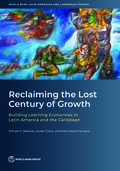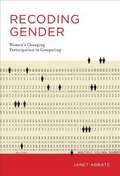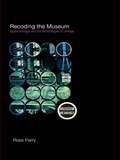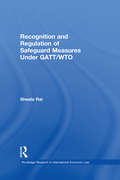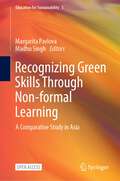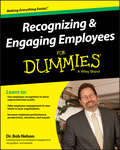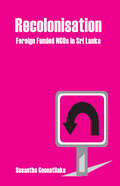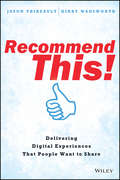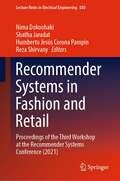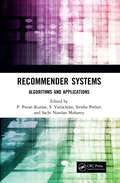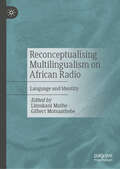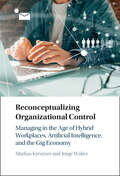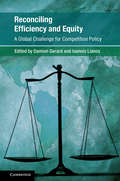- Table View
- List View
Reclaiming the Land of Purple: Purpl's Mission to Unlock Finance in Lebanon
by Lauren H. Cohen Grace HeadingerKarl Naim, Co-Founder and CEO of Purpl, embarked on a venture to lower remittance costs for his native Lebanon. Since October 2019, the Lebanese economy had entered a free fall as its banking sector collapsed and large swathes of its population were plunged into poverty. As a repeat technology entrepreneur, Naim alongside his two co-founders decided to launch a new remittance aggregator to improve access to low-cost remittances, which acted as a lifeline for most local families. By becoming a fiat-to-fiat aggregator and eventually leveraging stablecoin technology, he expected that in the first phase he could cut remittance fees in half from 9-12% to 5-6% -- and eventually up to 1%. With the Lebanese population's trust in financial and banking institutions shattered, could Purpl succeed in its mission? How could it convince its potential users, the broader Lebanese public and the 20 million-strong Lebanese diaspora around the world, to adopt a different way of sending and transacting with digital cash? For primary remittance users, who only needed to reliably receive a monthly $100-$200 for basic goods and other necessities, could Purpl convince them both to change their habits and to trust the financial system that had put them in this situation in the first place? Moreover, given Purpl's ultimate goal to upend the current establishment, would its "playing nice" with current established institutions haunt the firm's "anti-establishment" credibility from ever materializing?
Reclaiming the Lost Century of Growth: Building Learning Economies in Latin America and the Caribbean (World Bank Latin American and Caribbean Studies)
by Xavier Cirera William Maloney Maria Marta FerreyraLatin America and the Caribbean has lost not decades but a century of growth due to its inability to learn-—to identify, adapt, and implement the new technologies emerging since the Second Industrial Revolution. Superstars like Argentina, Chile, and Uruguay fell behind peers like France and Germany, while the entire region retrogressed in industries it once dominated and was unable to take advantage of new opportunities that propelled similarly lagging countries to high-income status. The report shows that this remains the case today as the region’s firms continue to lag in assimilating new technologies. However, it argues that Latin America and the Caribbean can reclaim the lost century by building learning economies, creating the human capital, institutions, and incentives needed to increase the demand for knowledge, facilitate the flow of new ideas, and foment the process of experimentation. "This outstanding book tackles one of Latin America’s greatest development puzzles: its failure to build high-income economies. The authors present a comprehensive theory placing knowledge—its creation, assimilation, and use—at the core of the explanation. Drawing on cutting-edge research, they meticulously document the empirical significance of each element and weave the threads together with remarkable precision, leaving no loose ends. In addition, they examine the missed opportunities that could have reshaped Latin America’s trajectory, advocating for a new knowledge-driven approach to industrial policy. A definitive reference on Latin American development, this book is essential reading for scholars, policy makers, and anyone invested in the region’s economic future." — Diego Comin, Professor of Economics, Dartmouth College "Nearly a century ago, Joseph Schumpeter highlighted the importance of the creation, application, and dissemination of knowledge for the prosperity of nations. And across the century that followed, numerous high-growth countries have confirmed his path to success. But, sadly, most of Latin America and the Caribbean has not. In this magnificent new book, readers will find data, information, theory, and arguments that explain why. More importantly, by examining the mechanics of knowledge assimilation and creation at the center of the 'innovation machine' that drives growth, interested readers will find in this text a wide variety of tools and mechanisms adapted to our local conditions to boost the region’s economic prosperity." — José Miguel Benavente, Chief Executive Officer, Chilean Economic Development Agency (CORFO)
Recoding Gender
by Janet AbbateToday, women earn a relatively low percentage of computer science degrees and hold proportionately few technical computing jobs. Meanwhile, the stereotype of the male "computer geek" seems to be everywhere in popular culture. Few people know that women were a significant presence in the early decades of computing in both the United States and Britain. Indeed, programming in postwar years was considered woman's work (perhaps in contrast to the more manly task of building the computers themselves). In Recoding Gender, Janet Abbate explores the untold history of women in computer science and programming from the Second World War to the late twentieth century. Demonstrating how gender has shaped the culture of computing, she offers a valuable historical perspective on today's concerns over women's underrepresentation in the field. Abbate describes the experiences of women who worked with the earliest electronic digital computers: Colossus, the wartime codebreaking computer at Bletchley Park outside London, and the American ENIAC, developed to calculate ballistics. She examines postwar methods for recruiting programmers, and the 1960s redefinition of programming as the more masculine "software engineering." She describes the social and business innovations of two early software entrepreneurs, Elsie Shutt and Stephanie Shirley; and she examines the career paths of women in academic computer science. Abbate's account of the bold and creative strategies of women who loved computing work, excelled at it, and forged successful careers will provide inspiration for those working to change gendered computing culture.
Recoding the Museum: Digital Heritage and the Technologies of Change (Museum Meanings)
by Ross ParryWhy has it taken so long to make computers work for the museum sector? And why are museums still having some of the same conversations about digital technology that they began back in the late 1960s? Does there continue to be a basic ‘incompatibility’ between the practice of the museum and the functions of the computer that explains this disconnect? Drawing upon an impressive range of professional and theoretical sources, this book offers one of the first substantial histories of museum computing. Its ambitious narrative attempts to explain a series of essential tensions between curatorship and the digital realm. Ultimately, it reveals how through the emergence of standards, increased coordination, and celebration (rather than fearing) of the ‘virtual’, the sector has experienced a broadening of participation, a widening of creative horizons and, ultimately, has helped to define a new cultural role for museums. Having confronted and understood its past, what emerges is a museum transformed – rescripted, re calibrated, rewritten, reorganised.
Recognition and Enforcement of Foreign Arbitral Awards
by George A. BermannThe Guide on the Convention on the Recognition and Enforcement of Foreign Arbitral Awards provides a detailed analysis of the judicial interpretation and application of the New York Convention by reference to case law from 45 Contracting States. The Guide, and the newyorkconvention1958. org website which supplements it, will become an essential tool that benefits all those involved in the interpretation and application of the New York Convention, including judges, arbitrators, practitioners, academics and Government officials. The Guide gives clear expression to the principal finding of our research, namely, that the Contracting States have interpreted and applied the New York Convention in an overwhelmingly consistent manner and that courts have diverged from the general trends in the case law in only isolated instances. As such, the Convention continues to fulfill its purpose of facilitating the worldwide recognition and enforcement of arbitral awards to the greatest extent possible.
Recognition and Regulation of Safeguard Measures Under GATT/WTO (Routledge Research in International Economic Law)
by Sheela RaiThis book discusses the law of safeguard measures as laid down in the WTO agreements and cases decided by the Panel and the Appellate Body. It sets out a comprehensive treatment of safeguard measures covering the history and evolution of the law, as well as the procedural requirements and the application of safeguard measures. In addition to measures under Article XIX and the Safeguards Agreement, the book includes coverage of safeguard measures for agricultural products, Special Safeguard Measures for developing countries, safeguard measures for textiles and proposed safeguard measures under General Agreement on Trade in Services (GATS) as well as special safeguard clauses against China. Recognition and Regulation of Safeguard Measures Under GATT/WTO considers safeguards from a developing country’s perspective drawing on Joseph E. Stiglitz’s argument that developing countries require these trade remedy measures to protect their domestic industries and ensure their development. Sheela Rai considers this view and goes on to examine how beneficial the provisions relating to safeguard measures and their interpretation given by the Panel and Appellate Body have been for developing countries.
Recognition of the Rights of Domestic Workers in India: Challenges and the Way Forward
by Indranath Gupta Upasana MahantaThis book brings together a set of contributions that examine the complexities associated with domestic work by highlighting not only the legal issues but also exploring the social, psycho-social, economic, and cultural dimensions of domestic work. The book aims to ignite a collective effort towards ensuring decent work for domestic workers and facilitate a public debate on their rights. It includes discussions on the issue of social justice with special emphasis on invisibilization and undervaluation of domestic work, feminization of domestic work, and recognizes the rights of domestic workers as human rights. The issues covered in this book bridge the gap between legal and social dimensions of domestic work and address the discrimination faced by domestic workers in a holistic manner. Given its scope, the book would appeal to both academics (law as well as social science) and non-academics. It will be a useful tool for teachers, students, practitioners, policy-makers and civil society organizations working for the unorganized sector.
Recognizing Green Skills Through Non-formal Learning: A Comparative Study in Asia (Education for Sustainability #5)
by Madhu Singh Margarita PavlovaThis open access book looks into the roles and practices of small and micro-enterprises in formal and informal economies across seven countries and one territory in terms of how they contribute to environmental and sustainable development and green skills promotion. By taking into account the perspectives in these four sectors, catering, automotive, waste management and polyvinyl chloride production, this book maps environmental green practices in the region, identifying mechanisms used to assess existing skills (i.e. knowledge, skills and competencies), and evaluating the potential for green skills inclusion in recognition, validation and accreditation.
Recognizing Lock-In: How to Leverage Switching Costs
by Hal R. Varian Carl ShapiroThis chapter explains how to value an installed base of customers and describes the common types of consumer and supplier lock-in and their associated switching costs. It examines the effectiveness of such lock-in strategies as contractual agreements, brand-specific training, and customer loyalty programs.
Recognizing Opportunities: Innovator as Entrepreneur
by Harvard Business Review PressMost innovative ideas are fun and interesting. But from a crowded field, how can you recognize an idea that has real business potential? Opportunity recognition is a mental process that can help you make this assessment. This chapter gives you the tools you need to decide whether to invest in a new idea.
Recognizing Revenues and Expenses: Realized and Earned
by Robert S. KaplanDescribes a key concept in financial accounting: choosing an appropriate revenue recognition point. The accrual process requires revenue recognition and expense matching for reporting on the value creation process of companies. Describes the two key criteria for revenue recognition--realized and earned--and the conditions that must be met to satisfy these criteria. The use of the typical recognition point, when the product or service is delivered to the customer, is discussed as well as situations (e.g., the percentage of competition method) when revenue can be recognized before actual delivery. A rewritten version of an earlier note.
Recognizing Revenues and Expenses: Realized and Earned
by Robert S. KaplanDescribes a key concept in financial accounting: choosing an appropriate revenue recognition point. The accrual process requires revenue recognition and expense matching for reporting on the value creation process of companies. Describes the two key criteria for revenue recognition--realized and earned--and the conditions that must be met to satisfy these criteria. The use of the typical recognition point, when the product or service is delivered to the customer, is discussed as well as situations (e.g., the percentage of competition method) when revenue can be recognized before actual delivery. A rewritten version of an earlier note.
Recognizing and Engaging Employees For Dummies
by Bob Nelsoning factor. When your employees feel appreciated, they stick around, work harder, achieve more, and drive your business onward and upward. This book shows you how to bring that dynamic to your workplace, with step-by-step guidance and helpful advice.Design successful recognition programsCreate powerful incentives for employeesReduce turnover, improve engagement, and drive excellenceFoster a happier and more productive workplaceHappy employees are productive employees. They get results. They innovate. They are the force behind the advancement of industries. Effective employee recognition programs are self-sustaining motivational tools that keep the fire lit. If you're ready to spark the flame, Recognizing and Engaging Employees for Dummies is the ideal guide for designing, implementing, and maintaining the program your employees have been waiting for.
Recolonisation: Foreign Funded NGOs in Sri Lanka
by Susantha GoonatilakeAs the Cold War ended there was a conscious policy shift in Western countries—and, as a consequence, among international agencies—which was directed at supporting non-governmental organizations (NGOs) in the developing world. As a result, large amounts of foreign funds began to be granted to various NGO groups with the ostensible aim of encouraging pro-people development. This book contributes to the emerging debate which is questioning the role of foreign funded NGOs. There is a growing awareness that they often have a powerful and structural influence, impacting on both organisational landscapes and civil society. In this context, Susantha Goonatilake studies the political economy of NGO activity in Sri Lanka, a country which once had a vibrant democratic tradition and a functioning civil society. The author maintains that focused NGO penetration into the country began in the 1980s, simultaneously with the growth of the authoritarian state. He contends that their subsequent activities in Sri Lanka have had a deep and visible impact on civic life: from restructuring the state, to de-mobilising the armed forces, to privatising foreign relations, to controlling key segments of academia and media. To illustrate his argument he takes up four areas—social development, human rights, international relations and academia—and describes the role of foreign funded NGOs in all four. Through these case studies the author highlights his basic premise: that the work of foreign funded NGOs actually undermines local civil institutions and that they project an implicit agenda for re-colonisation.. Constituting the first detailed case study of what is happening on the ground, this absorbing book challenges the widely held view of foreign funded NGOs being unsullied harbingers of good.
Recommend This!
by Kirby Wadsworth Jason ThibeaultImproving engagement with digital audiences is fast becoming a boardroom topic for many organizations. Digital marketers and communicators seeking to harness this newfound power are finding challenges in engaging digital audiences due to short attention spans, noisy channels, and rapidly changing consumer expectations. Recommend This! is an exploration into the digital consumer, and how their expectations are forcing marketers to re-think the way they interact and engage with audiences. Key topics discussed in the book are:Physical or digital, as humans we are driving to connect. Digital just makes it easier.Storytelling, rather than broadcast messaging, helps marketers engage with their digital audiences.Digital content must be personalized and relevant to receive attention, and more.
Recommender Systems in Fashion and Retail (Lecture Notes in Electrical Engineering #734)
by Nima Dokoohaki Shatha Jaradat Humberto Jesús Corona Pampín Reza ShirvanyThis book includes the proceedings of the second workshop on recommender systems in fashion and retail (2020), and it aims to present a state-of-the-art view of the advancements within the field of recommendation systems with focused application to e-commerce, retail, and fashion by presenting readers with chapters covering contributions from academic as well as industrial researchers active within this emerging new field. Recommender systems are often used to solve different complex problems in this scenario, such as product recommendations, or size and fit recommendations, and social media-influenced recommendations (outfits worn by influencers).
Recommender Systems in Fashion and Retail: Proceedings of the Fourth Workshop at the Recommender Systems Conference (2022) (Lecture Notes in Electrical Engineering #981)
by Humberto Jesús Corona Pampín Reza ShirvanyThis book includes the proceedings of the fourth workshop on recommender systems in fashion and retail (2022), and it aims to present a state-of-the-art view of the advancements within the field of recommendation systems with focused application to e-commerce, retail, and fashion by presenting readers with chapters covering contributions from academic as well as industrial researchers active within this emerging new field. Recommender systems are often used to solve different complex problems in this scenario, such as product recommendations, size and fit recommendations, and social media-influenced recommendations (outfits worn by influencers).
Recommender Systems in Fashion and Retail: Proceedings of the Third Workshop at the Recommender Systems Conference (2021) (Lecture Notes in Electrical Engineering #830)
by Nima Dokoohaki Shatha Jaradat Humberto Jesús Corona Pampín Reza ShirvanyThis book includes the proceedings of the third workshop on recommender systems in fashion and retail (2021), and it aims to present a state-of-the-art view of the advancements within the field of recommendation systems with focused application to e-commerce, retail, and fashion by presenting readers with chapters covering contributions from academic as well as industrial researchers active within this emerging new field. Recommender systems are often used to solve different complex problems in this scenario, such as product recommendations, size and fit recommendations, and social media-influenced recommendations (outfits worn by influencers).
Recommender Systems: Algorithms and Applications
by Sachi Nandan Mohanty P. Pavan Kumar S. Vairachilai Sirisha PotluriRecommender systems use information filtering to predict user preferences. They are becoming a vital part of e-business and are used in a wide variety of industries, ranging from entertainment and social networking to information technology, tourism, education, agriculture, healthcare, manufacturing, and retail. Recommender Systems: Algorithms and Applications dives into the theoretical underpinnings of these systems and looks at how this theory is applied and implemented in actual systems. The book examines several classes of recommendation algorithms, including Machine learning algorithms Community detection algorithms Filtering algorithms Various efficient and robust product recommender systems using machine learning algorithms are helpful in filtering and exploring unseen data by users for better prediction and extrapolation of decisions. These are providing a wider range of solutions to such challenges as imbalanced data set problems, cold-start problems, and long tail problems. This book also looks at fundamental ontological positions that form the foundations of recommender systems and explain why certain recommendations are predicted over others. Techniques and approaches for developing recommender systems are also investigated. These can help with implementing algorithms as systems and include A latent-factor technique for model-based filtering systems Collaborative filtering approaches Content-based approaches Finally, this book examines actual systems for social networking, recommending consumer products, and predicting risk in software engineering projects.
Reconceiving the Challenge of Change--The Importance of Individual Development
by Lisa Laskow Lahey Robert KeganIn the complex and ever-changing world we live in, human capability will be the critical variable in the new century. But leaders who seek to win a war for talent by conceiving of capability as a fixed resource to be found "out there" put themselves and their organizations at a serious disadvantage. Your ability to develop yourself, your people, and your teams, on the other hand, will distinguish your leadership ability. This chapter introduces a body of research on the development of mental complexity in adulthood, which has major implications for increasing personal as well as organizational adaptability. This chapter is excerpted from "Immunity to Change: How to Overcome It and Unlock the Potential In Yourself and Your Organization."
Reconceptualising Global Finance and Its Regulation
by Ross P. Buckley Emilios Avgouleas Buckley, Ross P. and Avgouleas, Emilios and Arner, Douglas W. Douglas W. ArnerThe current global financial system may not withstand the next global financial crisis. In order to promote the resilience and stability of our global financial system against future shocks and crises, a fundamental reconceptualisation of financial regulation is necessary. This reconceptualisation must begin with a deep understanding of how today's financial markets, regulatory initiatives and laws operate and interact at the global level. This book undertakes a comprehensive analysis of such diverse areas as regulation of financial stability, modes of supply of financial services, market infrastructure, fractional reserve banking, modes of production of global regulatory standards and of the pressing need to reform financial sector ethics and culture. Based on this analysis, Reconceptualising Global Finance and its Regulation proposes realistic reform initiatives, which will be of primary interest to regulatory and banking legal practitioners, policy makers, scholars, research students and think tanks.
Reconceptualising Multilingualism on African Radio: Language and Identity
by Gilbert Motsaathebe Limukani MatheThis book redefines multilingualism via the concept of radio in Africa. Africa presents unique challenges of lingual diversity which the media still struggles to accommodate, particularly when it comes to indigenous languages. Contributors argue that the linguistic realities of African radio reflect ethnic co-existence and fluidity of identity in pre-colonial, colonial and post-colonial contexts. They argue that communities consist of several “majorized” and “minoritized” indigenous languages which, if closely analysed, reflect a commonality of multilingualism. The book also suggests practical measures through which linguistic co-existence could be achieved and explores cases that redefine, reconceptualize and reframe multilingualism on African radio.
Reconceptualizing Organizational Control: Managing in the Age of Hybrid Workplaces, Artificial Intelligence, and the Gig Economy
by Markus Kreutzer Jorge WalterOrganizational control addresses the fundamental yet vexing managerial problem of aligning workers' capabilities, activities, and performance with organizational goals and aspirations. In recent years, the onset of COVID-19, combined with new developments in information and communication technologies, has brought about profound changes in organizations, and even in the nature of work itself. We have seen surges in virtual and remote work; progression of alternative work arrangements (especially in the gig economy); and an increasingly wide-spread reliance on algorithmic monitoring and control. These changes have exacerbated the tension between the pursuit of individual and organizational interests, exposing the limits of traditional approaches to organizational control, and questioning whether they still reflect contemporary organizational realities. Providing a comprehensive discussion of the multi-disciplinary approaches to organizational control, this book integrates the new and evolving trends in technology, organizations, and society into a reconceptualization of organizational control for twenty-first-century organizations.
Reconciling Efficiency and Equity: A Global Challenge for Competition Policy (Global Competition Law and Economics Policy)
by Ioannis Lianos Damien GerardDue to the growing influence of economics and economists in competition law and policy discourse and the internationalization of antitrust, the equity versus efficiency trade-off debate has played a defining role in the transformation of the dominant paradigm governing competition law enforcement since at least the 1970s. The debate remains crucial today as issues of economic inequality and its interaction with efficiency become of central concern to policy and decision-makers in competition law, as well as in other spheres of public policy. Despite their central role in the grammar of competition law on the global plane, the intellectual underpinnings of the interactions between 'equity' and 'efficiency' in the context of competition law have never been examined in-depth. This book aims precisely to fill this gap by discussing new approaches in understanding the role of efficiency and equity concerns in competition law.

